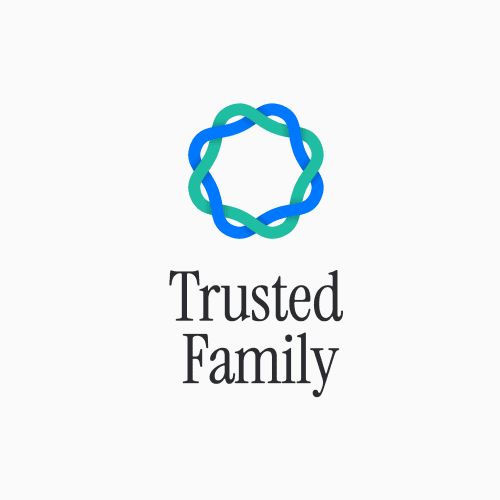As the younger generation assumes the helm of leadership, family offices are undergoing a profound transformation. Many family offices worldwide are preparing for generational transition within the next few years. This transition represents more than a changing of the old guard. It signifies a fundamental shifting of wealth management principles, investment strategies, and approaches to succession planning. Below is a breakdown by WealthX.com of the global wealth transfer underway:
| Region | Projected transfer value | Key characteristics |
|---|---|---|
| North America | $10.6 trillion by 2030 | Mature, multi-generational wealth; largest absolute transfer value. |
| Europe | $3.6 trillion by 2030 | Established, long-standing family fortunes; complex cross-jurisdictional planning. |
| Asia–Pacific | $5.8 trillion by 2030 | Young, first or second-generation wealth; strong preference for SFOs. |
| Middle East | $1 trillion by 2030 | Wealth is concentrated in family-owned operating businesses. |
The evolution of family office leadership
From this transfer of wealth and assets, what family offices need to know is that UHNW Millennials and Gen Z are not merely younger versions of their parents. They represent a new archetype of wealth holders with a distinct set of values. As they begin to step into decision-making roles, family offices will experience a significant shift in leadership philosophy.
Characteristics of next-gen principals
Below are three key characteristics that distinguish this new generation from its predecessors:
Digital nativity: Born into a world of ubiquitous digital connectivity, the next-generation family office principal is digitally fluent. An overwhelming majority use technology and AI for financial decision-making. Should an investment decision arise, they don’t hesitate to use Google and lately chat with ChatGPT to get the correct answer.
Global mindset: Nowadays, UHNWIs are more flexible and strategic about where they want to work and live. Whether it’s through golden visas or citizenship-by-investment schemes, they realise that their wealth is unrestricted by country borders. Many are opting for residency based on factors like regulatory stability, lifestyle choices, or opportunities for philanthropy.
Transparent governance: The younger generations have grown accustomed to readily available information and clear, understandable systems. This preference extends to their expectations for how family offices are managed. They are likely to favour structures where decision-making processes and performance metrics are openly communicated and easily accessible, mirroring the transparency they experience with other online platforms.
We rounded up a few companies that you might find interesting.
What family offices can expect
Perhaps the most visible change in the next-gen leadership is the shift in investment management and technology. For instance, according to Capgemini’s World Wealth Report, 87% of millennial UHNW individuals consider social impact when making investment decisions, compared to only 30% of their predecessors.
Shifting investments
Family offices can expect new investment priorities to emerge. One is integrating environmental factors into core strategies and increasing allocation to impact investments and venture capital. Another is adding digital assets and blockchain technologies to their portfolios. Finally, while real estate and infrastructure will remain, next-gen principals will likely place greater emphasis on global diversification.
Adding technology
Family offices can expect next-gen principals to drive significant technological transformation within operations. With higher expectations for technology and a desire for greater involvement in wealth management, the trusted old Excel and PDFs are not going to cut it with this new generation of leaders.
They will push for technology that simplifies their lives and aligns with their values. In a conversation with Ken Gamskjaer, CEO of next-gen platform Aleta, he observed that “next-gens have a more holistic perspective” on wealth management. Moreover, having not generated their wealth, part of their adoption of new technologies is driven by their desire to forge their own legacies rather than simply repeating what their parents did.
Current state of succession planning
So, where do most family offices stand when it comes to passing the baton to next-generation leaders? A recent poll of the Simple community highlights the most acute pain points: 30% cite “founder letting go” as the toughest part of succession planning. 26% say preparing the next generation is the toughest part, 12% identify finding the right successor, and another 12% struggle with finding time.
In terms of readiness, another one of our polls found that only 17% of family offices have “defined roles and timing” for key leadership succession. 39% say “the conversation has started,” while 26% admit “we know it’s urgent,” and another 17% have yet to make it a focus.
Faced with this uphill battle, family office leaders can take proactive steps to make progress. And that starts with education and family governance.
Preparing the modern family office
As family offices undergo this significant shift in leadership, focusing on education, mentorship, and the evolution of governance can help facilitate a seamless and successful intergenerational transfer of wealth and leadership.
Using education and advisors
For next-gen principals to be effective, they need to go through extensive preparation. This includes formal education in finance, business, estate planning, or any other related fields. It’s also encouraged to gain external work experience before eventually joining the family business.
Furthermore, next-gen principals can also benefit immensely from mentorship provided by family members and external advisors. As Simple Expert, Lise Møller, says, “Business school programs give families the vision, tools, and motivation to create systems and transform their setups. However, without expert guidance afterwards, much of those potential risks remain unused.”
Using good governance principles
Another family office strategy for successful leadership transition is to practice David Werdiger’s three principles of good governance, which state that culture is established from the top down. Applying these principles helps foster a healthy culture that prevents intergenerational conflict, which is vital for an orderly transfer of leadership.
These three guiding principles—honest communication, responsible use of power, and stewardship over ownership—lead to a well-governed family unit. They also directly contribute to a smooth transition by ensuring clear communication of roles, preventing power abuses during changes, and fostering a long-term, responsible approach to wealth management.
To sum it all up
The next-generation principal presents a pivotal evolution in family office leadership, geared towards embracing tech innovation, purpose, and a global perspective. As wealth transitions to millennials and Gen Z family members, the family office model will transform to align with modern investment opportunities and evolving definitions of legacy.
For family offices that are in or about to undergo this transition, success will depend on thoughtful preparation, transparent communication, and practising good governance principles that maintain family values while embracing change. The most effective next-gen principals will balance innovation with wisdom, leveraging new technologies and investment approaches while preserving the core values that have sustained family wealth across generations.









